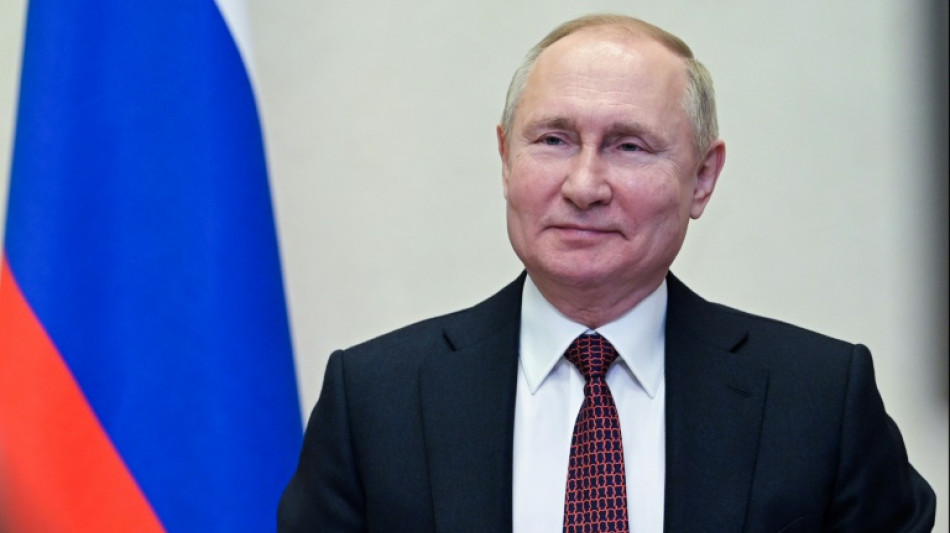
-
 India central bank cuts interest rates as Trump tariffs kick in
India central bank cuts interest rates as Trump tariffs kick in
-
Taiwan exporters count the cost of Trump's 'ridiculous' tariffs
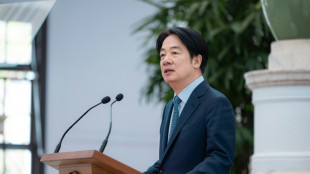
-
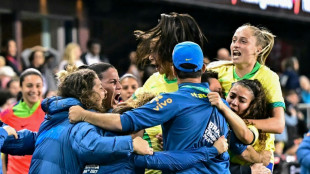 Injury-time goal gives Brazil first win over US women since 2014
Injury-time goal gives Brazil first win over US women since 2014
-
Japan badminton ace Shida blasts 'stalker' Chinese fans
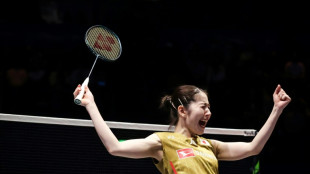
-
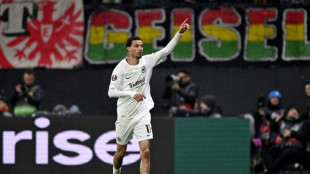 Ekitike has Frankfurt dreaming of Europa League repeat
Ekitike has Frankfurt dreaming of Europa League repeat
-
Trump's new tariffs take effect, with 104% on Chinese goods

-
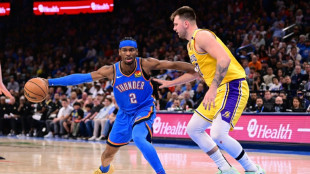 Shai scores 42, Doncic ejected as Thunder down Lakers
Shai scores 42, Doncic ejected as Thunder down Lakers
-
Nepal royalists seek return of king

-
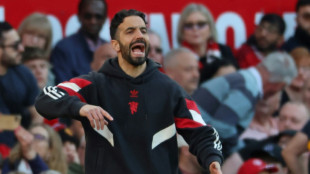 Man Utd reliant on Europa League with season on life support
Man Utd reliant on Europa League with season on life support
-
Kim Jong Un's sister says North Korea denuclearisation is a 'daydream'
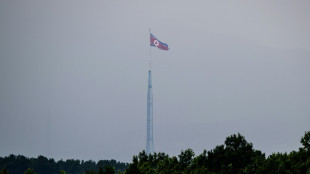
-
 Trump tariffs leave Italy's luxury furniture makers sitting uncomfortably
Trump tariffs leave Italy's luxury furniture makers sitting uncomfortably
-
EU plan to end Russian fertiliser imports unsettles farmers
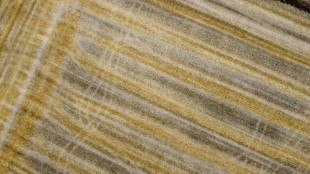
-
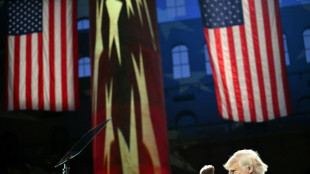 Equities resume selloff as Trump cranks up trade war
Equities resume selloff as Trump cranks up trade war
-
Inside Europe's last 'open-outcry' trading floor
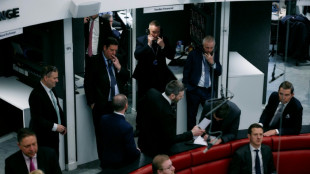
-
 Trumps presses on with 104% tariffs on China
Trumps presses on with 104% tariffs on China
-
AI tool aims to help conserve Japan's cherry trees
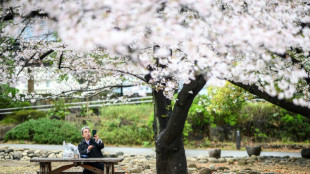
-
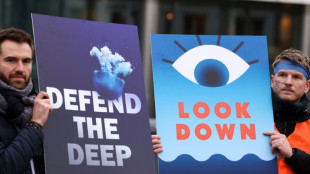 The Metals Company courts Trump for deep-sea mining contract
The Metals Company courts Trump for deep-sea mining contract
-
Indonesia president says ready to temporarily shelter Gazans
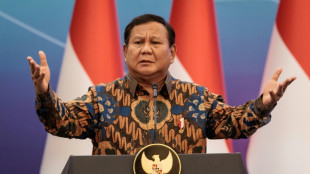
-
 Musk brands Trump aide 'dumber than a sack of bricks' in tariff spat
Musk brands Trump aide 'dumber than a sack of bricks' in tariff spat
-
Author of explosive Meta memoir to star at US Senate hearing
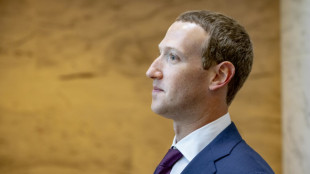
-
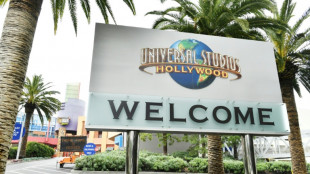 UK to host Europe's first Universal theme park
UK to host Europe's first Universal theme park
-
'It's beautiful': Arteta hails Rice free-kick magic as Arsenal stun Real
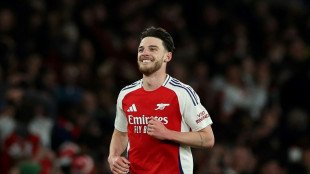
-
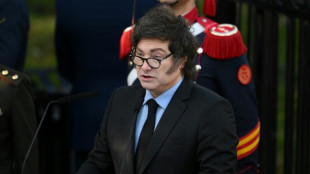 Argentine Congress backs inquiry into Milei crypto scandal
Argentine Congress backs inquiry into Milei crypto scandal
-
US will not let China disrupt Panama Canal: Pentagon chief
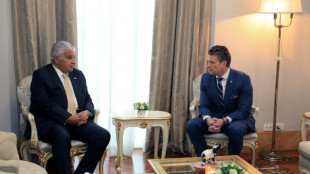
-
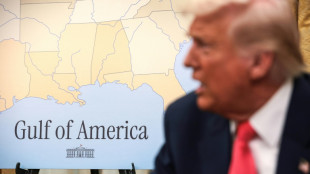 Judge orders White House to restore AP access
Judge orders White House to restore AP access
-
Shaken Real Madrid insist Arsenal comeback possible
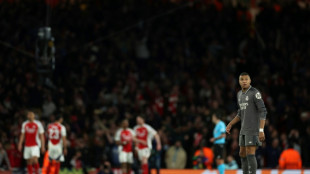
-
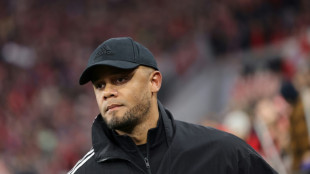 Bayern 'fully believe' despite Inter setback, says Kompany
Bayern 'fully believe' despite Inter setback, says Kompany
-
Inter 'showed what we were made of' against Bayern, says Martinez
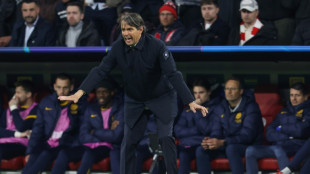
-
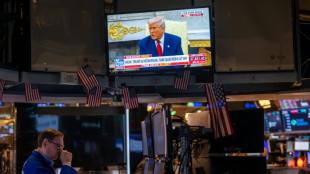 US stocks fall again as global rally fizzles
US stocks fall again as global rally fizzles
-
Milan's England defender Walker has surgery on broken elbow
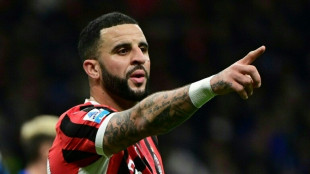
-
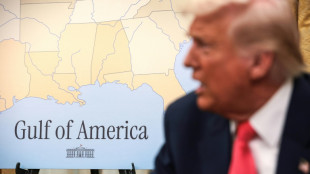 Judge orders White House to lift restrictions on AP access
Judge orders White House to lift restrictions on AP access
-
Free-kick hero Rice revels in Arsenal's 'special' win over Real
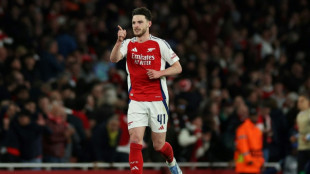
-
 'Totally new': Scheffler readies for Masters defense
'Totally new': Scheffler readies for Masters defense
-
Stuffy nose and steak knife join Scheffler's list of Masters tests

-
 Late Frattesi strike gives Inter edge over Bayern in Champions League
Late Frattesi strike gives Inter edge over Bayern in Champions League
-
Arsenal stun Real Madrid as Rice delivers free-kick masterclass

-
 Spain thump Portugal in women's Nations League as Belgium upset England
Spain thump Portugal in women's Nations League as Belgium upset England
-
Spain enjoy goal spree against Portugal in women's Nations League as Belgium upset England

-
 Emery relishes Aston Villa's 'huge challenge' against PSG
Emery relishes Aston Villa's 'huge challenge' against PSG
-
Rahm on LIV-PGA solution: not happening soon

-
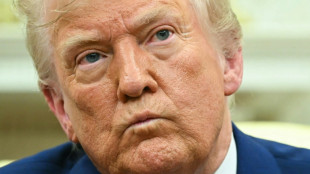 US, China clash as Trump set to unleash more tariffs
US, China clash as Trump set to unleash more tariffs
-
Cabrera returns to Masters with regrets in second chance at life

-
 No.4 Morikawa ponders career Slam with Masters in his sights
No.4 Morikawa ponders career Slam with Masters in his sights
-
French parliament restricts birthright citizenship in Mayotte
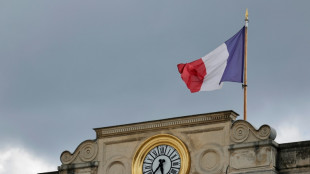
-
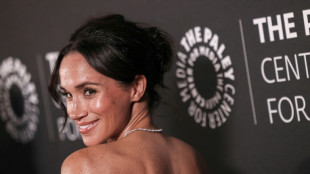 Meghan Markle reveals pregnancy-related medical complications
Meghan Markle reveals pregnancy-related medical complications
-
Spain enjoy goalfest against Portugal in women's Nations League as France edge Norway

-
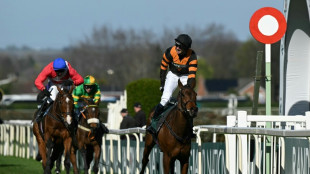 Patrick Mullins hit with eight-day whip ban over Grand National ride
Patrick Mullins hit with eight-day whip ban over Grand National ride
-
Patrick Mullins suspended for winning Grand National ride
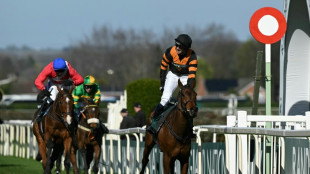
-
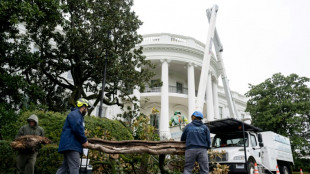 Trump plants 'MAGAnolia' to replace 200-year-old tree
Trump plants 'MAGAnolia' to replace 200-year-old tree
-
Pooran, Arya break free as Lucknow and Punjab win in IPL


Vladimir Putin's long obsession with Ukraine
Russian President Vladimir Putin, who launched an invasion of Ukraine on Thursday, has long been obsessed with returning the country to Moscow's fold, in the name of Russia's greatness.
For many Russians of his generation, who were raised on Soviet propaganda, the USSR disintegrating and its spheres of influences vanishing remains an open wound.
For Putin, a KGB officer based in East Germany at the time the Soviet Union was gradually collapsing -- between 1989 and 1991 -- this was a personal defeat.
The Russian leader has said many times that he suffered the same misery as his compatriots when the Soviet empire crumbled, recently claiming he was forced to drive a taxi to make ends meet when he returned to his homeland.
For many Russians, the years after the Soviet collapse were marked by humiliation and poverty -- a stark contrast to the West's triumphalism and prosperity at the time.
Putin has claimed that the end of the Soviet Union was the "greatest geopolitical catastrophe of the 20th century" -- despite Russia living through two world wars.
Putin's rhetoric became more extreme in recent weeks, as between 150,000 and 200,000 Russian troops massed along the borders of Ukraine, prompting a broad diplomatic effort aimed at preventing an invasion.
In a speech on February 21, Putin baselessly accused Ukraine of seeking a nuclear weapon and called its government a "neo-Nazi" regime that bore responsibility for any further bloodshed.
- 'Crossed over to the dark side' -
He recognised the independence of two separatist regions and authorised sending "peacekeepers" into the rebel provinces.
Tatiana Stanovaya, who runs the R.Politik analytical centre, predicted grim times ahead, saying that Putin had "crossed over to the dark side of history."
On Thursday, Putin declared "I have made the decision of a military operation" in Ukraine, during a television address, and explosions were soon heard across the country, triggering swift international condemnation.
He justified the operation by accusing the Kyiv government of overseeing a "genocide" in the east of the country.
Observers say Putin's sense for revenge over Ukraine deepened when NATO and the EU expanded into countries once dominated by Moscow.
For the long-time Russian leader, any attempts towards bringing Ukraine into Western alliances have represented a red line.
Putin has made it his historical mission to stop this advance in what he believes should be Russia's region of influence.
In his vision, "if the authorities do not solve this security problem now, then Ukraine will be in NATO in 10-15 years", according to analyst Alexei Makarkin.
When a pro-Western revolution took place in Kyiv in 2014, Moscow annexed Ukraine's Crimean peninsula and pro-Russian separatists took up arms in the east of the country, in a conflict that cost more than 14,000 lives.
- Some 'only understand force' -
For the Kremlin chief, Russia must respond by being strong, menacing even. Giving in is not in the nature of the former KGB agent and judoka.
Born into a working-class Saint Petersburg family, Putin said in 2015 that "if a fight is inevitable, you must strike first."
One of his teachers, Vera Gurevich, has said that when a 14-year-old Putin broke one of his classmate's leg, the future president said that some "only understand force."
He has repeatedly called into question the idea of distinct Ukrainian identity and statehood.
Putin claims that two Ukrainian revolutions -- in 2005 and 2014 -- that drove out pro-Russia elites were the result of a Western plot.
As far back as 2008, according to Russian and US media, Putin told his then US counterpart George W. Bush that "Ukraine is not even a country."
During his end-of-year press conference in December, Putin again raised eyebrows by saying Ukraine was "created" by Vladimir Lenin, the founder of the Soviet Union.
Months earlier, in a long article called "On the historical unity of Russians and Ukrainians," he said that Kyiv's decisions are driven by a Western "anti-Russia" plot.
Analyst Stanovaya said that Putin has always believed that the Ukrainian people are themselves pro-Russians that have been "the subject of manipulation".
She said that in the Kremlin's "understanding, war would not be an attack on Ukraine, but a liberation of the Ukrainian people from a foreign occupier."
The Kremlin has for years repeated its line that the West has taken advantage of Russia's post-Soviet weakness to camp close by, betraying vague promises made in the twilight of the USSR.
What drives Putin, said Makarkin, "is the desire to stop time."
P.Costa--AMWN